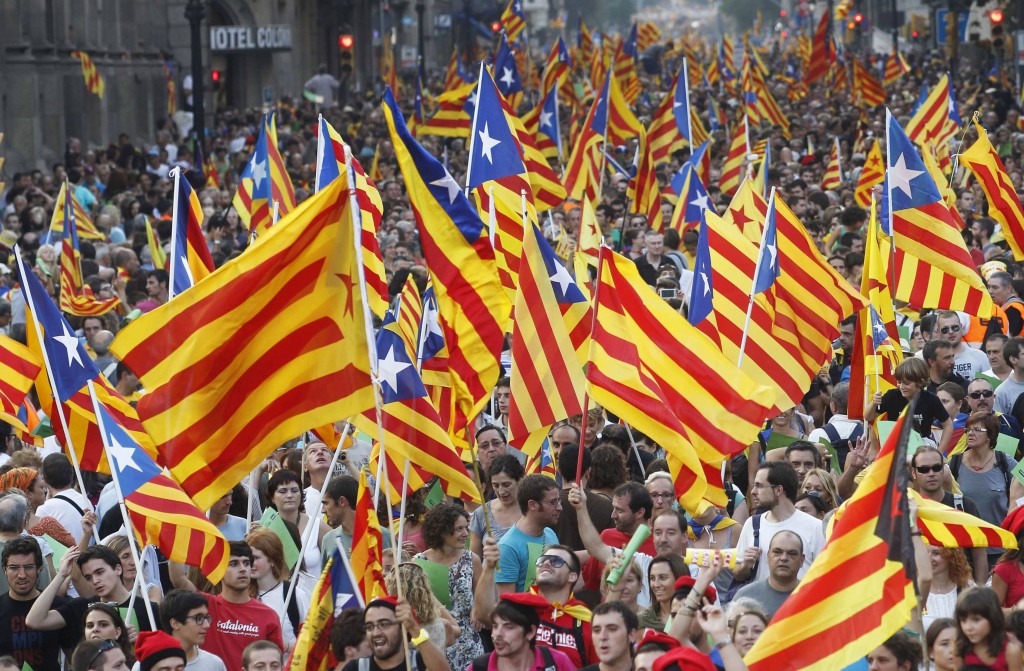.

Catalan nationalists demonstrate in support of independence
NATIONS WITHOUT STATES seeks to highlight the plight of peoples who aspire to nationhood. These might be based on peoples or tribes based within a state or even across borders that may or may not have been independently organised in the past. They might have a linguistic or historical separateness from their neighbours or fellow citizens. All will aspire to recognition, autonomy or independence.
And as self-determinists we support the right of all such peoples to determine their future whatever they wish that to be. This includes for example the Kurds, Flemish, Sikhs and Tamils.
However, when it comes to obtaining any form of self-determination, the reaction of the ‘powers that be’ can be wildly different. One only has to take a look at three cases in Europe to see this.
The first example is that of Czechoslovakia. On 1 January 1993, this artificial state (created after World War I) split into the Czech Republic and Slovakia. This act of self-determination became known as the Velvet Divorce, and it also saw the end of the rule of the centralist and unionist Communist Party of Czechoslovakia – CPC.
Czechoslovakia remains an example of where the authorities bowed to ‘people power.’ Here popular demonstrations and strikes – staged by students, dissident activists and ordinary working folks – forced the leadership of the Communist Party to resign. The authority of the CPC had been ursurped and they were forced to accept the reality of situation.
The second example is that of Scotland. Here a referendum on Scottish independence was held earlier this year on 18 September. Here 2,001,926 (55.3%) voted against independence with 1,617,989 (44.7%) voting in favour. This was on a massive turnout of 84.6%.
Although UK Prime Minister David Cameron likes to portray himself as a ‘cool dude’ who’s in favour of referendums (after all he keeps promising one on Britain’s EU membership!) many self-determinists feel that he wouldn’t have sanctioned the referendum if it wasn’t for the existence of a devolved Scottish Parliament based at Holyrood. The parliament itself is controlled by the Scottish National Party, which has advocated independence since its formation in 1934. It could be argued that without these factors, Cameron would have had to been dragged kicking and screaming to negotiating table.
The last example is that of Catalonia. On 9 November more than 80% of the electorate voted for independence. Here, more than two million people – out of an estimated 5.4 million eligible voters – took part in the ballot.
However, the referendum (or “non-referendum consultation” as it was termed) had no legal basis as Spain’s constitutional court had ruled that out. Indeed, Spanish Prime Minister Mariano Rajoy has said that the vote was illegal and Justice Minister Rafael Catala dismissed the vote as “fruitless and useless”.
It seems that Catalonia’s position is very similar to that of other captive nations, whereby various ‘super states and Empires simply sit in denial. With this – and our three examples – in mind, our question for this debate is: How can self-determinists force governments to give us our freedom?
































